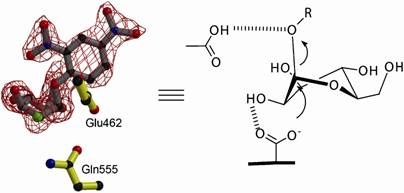Polymer support for organocatalysts
Advertisement
Korean scientists have developed a promising polymer supported organocatalyst which is adjustable for industrial use.
Choon Eui Song and colleagues at Sungkyunkwan University and AmorePacific Corporation have prepared a highly enantioselective and indefinitely stable polymer-supported cinchona-based bifuntional sulphonamide catalyst. It is highly effective in facilitating a variety of useful asymmetric reactions. For example, the use of 1 mol% of this catalyst enabled the completion of methanolytic desymmetrization of cyclic anhydrides within a few hours. The corresponding hemiesters were obtained in high yield (greater than 99%) and excellent enantioselectivity (up to 97% ee).
‘The stereoselective alcoholysis of these anhydrides is particularly attractive, as the resulting hemisesters are used as versatile intermediates for the synthesis of a variety of biologically active compounds,’ explains Song.
The long term stability of this catalyst allows repeated recycling without any loss of turnover time or enantioselectivity. Song and colleagues are now developing a macroreticular resin that is as reactive and stereoselective as the heterogeneous organocatalyst described here.
Original article: Youk et al.; "A polymer-supported Cinchona-based bifunctional sulfonamide catalyst: a highly enantioselective, recyclable heterogeneous organocatalyst"; Chem. Commun. 2009
Other news from the department science
Most read news
More news from our other portals
See the theme worlds for related content
Topic world Synthesis
Chemical synthesis is at the heart of modern chemistry and enables the targeted production of molecules with specific properties. By combining starting materials in defined reaction conditions, chemists can create a wide range of compounds, from simple molecules to complex active ingredients.

Topic world Synthesis
Chemical synthesis is at the heart of modern chemistry and enables the targeted production of molecules with specific properties. By combining starting materials in defined reaction conditions, chemists can create a wide range of compounds, from simple molecules to complex active ingredients.





























































